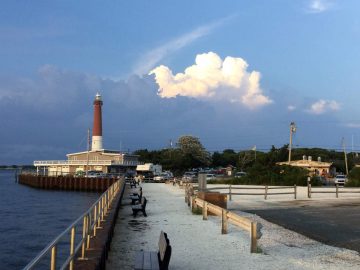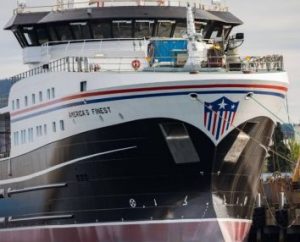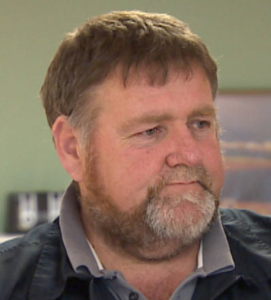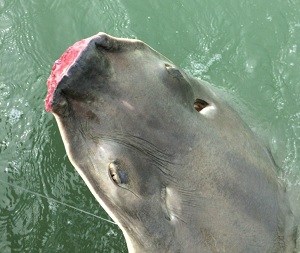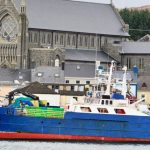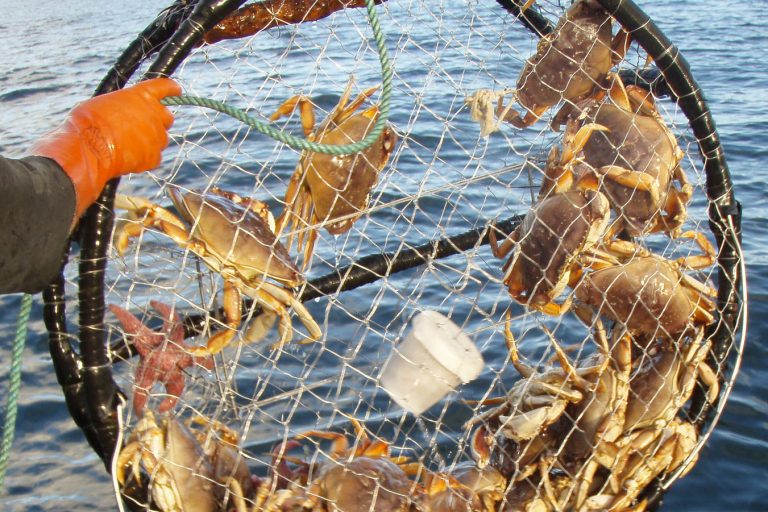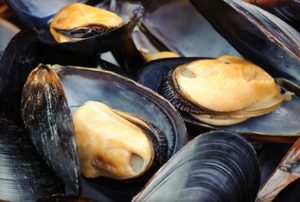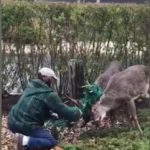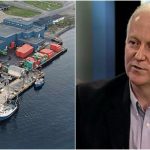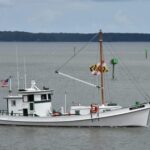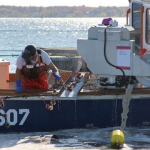Monthly Archives: May 2018
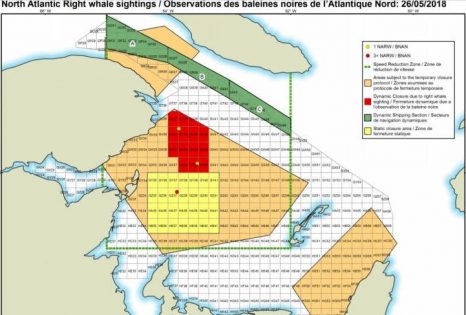
Presence of right whales leads to more fishery closures, to take effect May 30, 2018 at 4 p.m.
The presence of North Atlantic right whales has led to the closure of more fishery areas. Fisheries and Oceans Canada said the temporary closure will start at 4 p.m. on May 30. It is providing a 72 hour advanced notice and extending the delay of the closure by 24 hours due to predicted high winds. It’s unclear how long the closures will last, but DFO said it would make an announcement to industry before it re-opens the area. >click to read<10:18
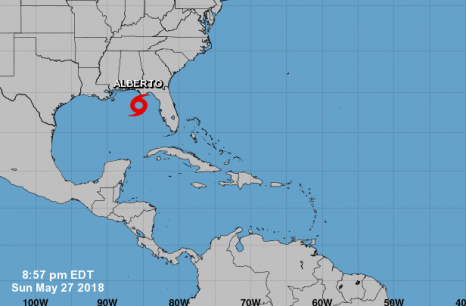
Subtropical Storm Alberto Public Advisory
At 730 PM CDT (0030 UTC), the center of Subtropical Storm Alberto was located near latitude 28.4 North, longitude 85.7 West. The storm is moving toward the northwest near 10 mph (17 km/h). A northwest to north-northwest motion with some decrease in forward speed is expected overnight. A north-northwestward to northward motion is expected Monday through Wednesday. On the forecast track, the center of Alberto will move over the northern Gulf of Mexico tonight and cross the northern Gulf Coast in the warning area on Monday. Alberto is expected to move inland into the Tennessee Valley on Tuesday and into the Ohio Valley on Wednesday. Maximum sustained winds are near 65 mph (100 km/h) with higher gusts. Little additional strengthening is expected before Alberto reaches the northern Gulf Coast. >click to read<21:13
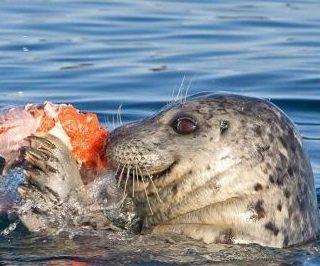
Seals a major factor in fewer salmon
Re: “Ottawa cutting chinook catch to save orcas,”>click to read< May 25. The article concerning the decline of chinook salmon and orca populations fails to mention the influence of seals. According to the University of British Columbia marine mammal research unit, seal numbers in the Strait of Georgia increased from about 5,000 to more than 40,000 from 1970 to 2008, and now kill about half of the juvenile coho and chinook. Reducing the salmon sport catch without addressing the exploding numbers of seals will not help the orcas much. >click to read<17:53
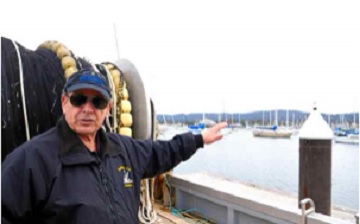
Fishermen know the truth about sardines
Reporter Anne Roth quoted me in her article “When will sardines return? Not any time soon say scientists.” But she misunderstood what I said. I’m one of the fishermen Diane Pleschner-Steele quoted in her comment, “Fishermen are seeing more sardines, not less.” I’ve been fishing for 60 years, and I’ve seen sardines come, go and come back again. But the government surveys that assess the biomass don’t come into coastal waters where the fish are now. In fact, we began seeing an abundance of small sardines right before the 2015 El Niño. Aniello Guglielmo, Monterey >click to read< for more articles on this issue, >click to read<12:19
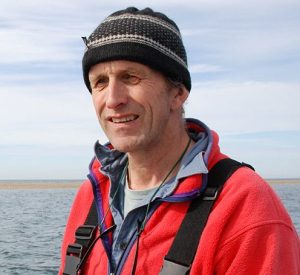
How ropeless fishing traps could protect North Atlantic right whales — and the fishing industry
Tensions between Atlantic fishermen and conservationists escalated this week as the Department of Oceans and Fisheries closed six fishing grounds off the coasts of New Brunswick and Quebec.,, The whales’ arrival left many Canadian fishermen scrambling to remove their equipment from the affected waters amidst concern over what the closures could mean for their quotas. But scientist and veterinarian Michael Moore is advocating for a new technology that could appease both groups: ropeless fishing traps. >click to read<Who is Michael Moore, >click to read<09:52
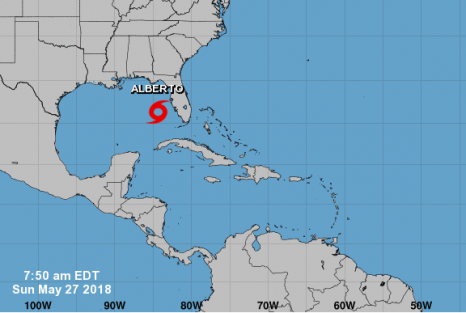
Subtropical Storm Alberto Public Advisory
At 800 AM EDT (1200 UTC), the center of Subtropical Storm Alberto was located near latitude 26.3 North, longitude 84.4 West. The storm is moving toward the north near 15 mph (24 km/h). A turn toward the north-northwest at a slower forward speed is forecast tonight. A north-northwestward to northward motion is expected Tuesday through early Wednesday. On the forecast track, the center of Alberto will cross the eastern and northern Gulf of Mexico today and approach the northern Gulf Coast in the warning area tonight or Monday. Heavy rainfall and tropical storm conditions will likely reach the northern Gulf Coast well before the arrival of the center of Alberto. Alberto is expected to move northward into the Tennessee Valley on Tuesday and Wednesday. >click to read<08:24

Lobster processing bill OK’d by Mass State Senate
“Massachusetts has the second largest lobster catch in the country,” Tarr said in a statement. “To keep from being left behind, we should expand our ability to process raw and frozen lobster parts. American lobsters are being harvested here and should be prepared for market here instead of Canada or Maine.” The expansion of allowed processing practices, according to Tarr, would enhance local economies in Massachusetts coastal communities such as Gloucester, which is the state’s most lucrative lobster port, and provide local restaurants and food stores with “superior access to the best lobster parts for their customers.” >click to read<19:26

Coast Guard confirms fisherman found by divers inside vessel in Willapa Bay
Coast Guard personnel confirm the missing fisherman was found by divers inside the sunken vessel, the Kelli J, prior to it being refloated by contractors in Willapa Bay, Friday. Pacific County Sheriff’s Office personnel transported the fisherman to a local funeral home that evening. The vessel is being taken to the Nachotta marina with the owner’s insurance company coordinating the remaining salvage efforts. The Kelli J was originally reported missing on Saturday, May 19, which sparked search and rescue efforts that extended into Monday when the search was suspended. Multiple efforts were conducted to attempt to locate the missing vessel that resulted in the vessel being found submerged within Willapa Bay on Wednesday. >link<-USCG-
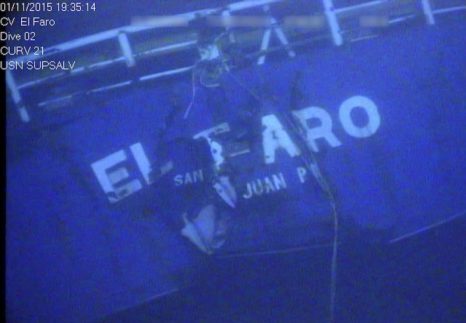
NTSB Breaks Down El Faro Findings in Must-Read Illustrated Digest
The National Transportation Safety Board has released 16-page illustrated digest summarizing in detail the critical events and decisions that led to the October 1, 2015 sinking of the American cargo ship El Faro with the loss of all 33 crew members. The digest also synopsizes the more than 60 recommendations issued throughout the NTSB’s investigation of the sinking. In its final report into the disaster, the NTSB said the Captain’s decisions and TOTE’s poor oversight and inadequate safety management system led to the sinking, the deadliest shipping disaster involving a U.S. flagged vessel in more than 30 years >click to read<17:58
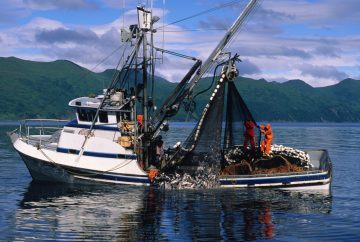
B.C. Commercial fishermen support cuts in Chinook catches
The commercial fishing industry in BC is supporting a move to shut down the Chinook salmon fishery in parts of the Strait of Juan de Fuca and the Gulf Islands as well as partial closures in the mouth of the Fraser River. The federal government is hoping the measures will increase the amount of salmon for the endangered southern resident killer whale population. Dane Chauvel is a commercial fisherman who co-founded the sustainable seafood supply company Organic Ocean and sits on the Commercial Salmon Advisory Board. >click to read<14:17
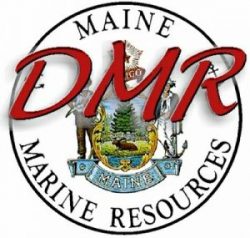
Trawl limit plan divides lobstermen at hearing
A Department of Marine Resources proposal to change the way some lobstermen fish in a large swath of water around Mount Desert Rock drew vocal opposition at a meeting in Ellsworth May 22 despite a unanimous vote in the Zone B Lobster Management Council. At issue is a proposal to limit the number of traps that can be linked together in a single “trawl” in an area of about 300 square miles. The roughly rectangular area in waters that are part of Lobster Management Zone B stretches about 10 miles seawards from a line drawn six miles off the coast that extends roughly between Schoodic Point in the east and the southern end of Marshall Island in the west. >click to read<11:54
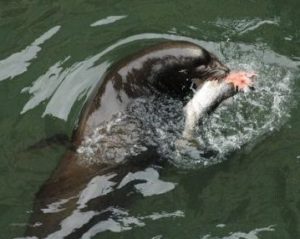
Congress must act — again — to save salmon from hungry sea lions
Government agencies spend hundreds of millions of dollars annually trying to preserve threatened salmon and steelhead runs in the Columbia River Basin. Yet in recent years, a growing population of hungry sea lions has jeopardized all of that investment and hard work.,, Congress needs to safeguard the public’s investment in conserving these vulnerable salmon and steelhead runs along the Columbia. Republicans and Democrats must come together this year to pass legislation making it easier to lethally remove some of the sea lions. That will mean relaxing a section of the 1972 Marine Mammal Protection Act,,, >Click to read<11:34
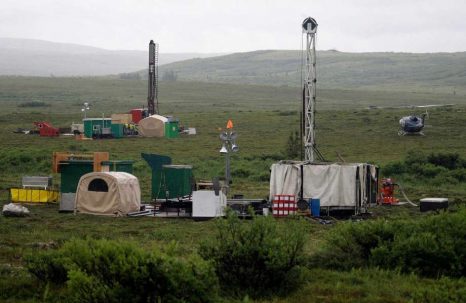
Canadian investor backs away from Alaska mine project
A Canadian company that was courted as a potential partner in a proposed copper-and-gold mine near one of the world’s largest salmon fisheries in Alaska has backed away from the project.
Northern Dynasty Minerals Ltd., which is seeking to develop the Pebble Mine project in southwest Alaska, said Friday that it was unable to finalize an agreement with First Quantum Minerals Ltd., the potential investor. It was not immediately clear what happened or what this means for the project, which has a permit application pending with the U.S. Army Corps of Engineers. >click to read<10:55
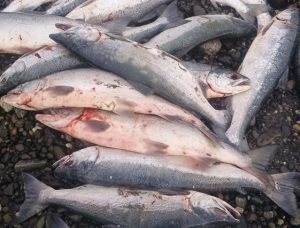
Smoke-filled rooms
With the fishing season beginning in the 49th state, Alaska Gov. Bill Walker has been holding private meetings to forge an agreement between commercial, sport and other fishing interests on how to manage salmon in Cook Inlet. The reason why is unclear. By law, the regulation of state fisheries falls solely under the jurisdiction of the Alaska Board of Fisheries. One of the first acts of the Alaska Legislature after Statehood in 1959 was to establish a Board of Fish and Game – later split into the separate boards for fish and wildlife management – to insulate resource decisions from backroom politicking. >click to read<10:37
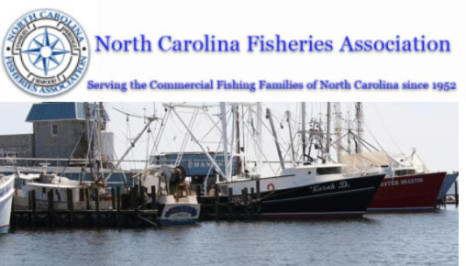
North Carolina Fisheries Association Weekly Update for May 25, 2018
>Click here to read the Weekly Update<, to read all the updates >Click here<, for older updates listed as NCFA >click here<10:04
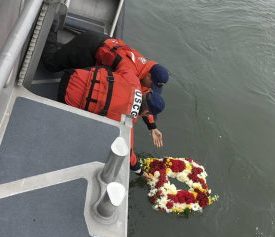
Fun and food at Westport’s “Weekend with the Fleet” this weekend
The annual Weekend with the Fleet celebration in Westport will honor the commercial fishing industry and the maritimers who gave their all this Memorial Day weekend. There will be vendors featuring arts and crafts stations, fishing competitions, Sea Scout displays, a beer garden and more starting today. The festival runs from 10 a.m. to 4 p.m. at the Westport Maritime Museum grounds at 2201 Westhaven Drive. Then at 7:30 p.m. is the Light the Dock celebration along Westhaven Drive. It features luminary displays honoring maritime professionals who lost their lives at sea. Luminaries are available for purchase at the event.,,, Sunday will feature the Blessing of the Fleet ceremony beginning at 1 p.m. at the Fishermen’s Memorial on Neddie Rose Drive,,>click to read<
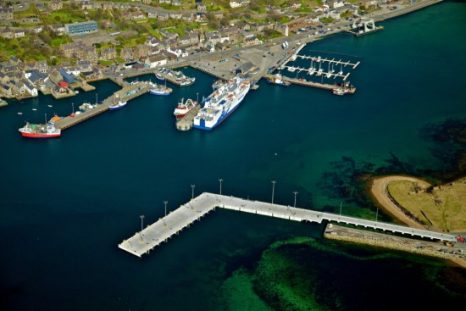
Ten-year transformation of Scottish fishing village wins top UK planning award
A 10-year plan to regenerate a declining fishing village in Scotland has won the top prize at a prestigious national awards ceremony. The plan for Stromness – which included extensive community input – was awarded the Silver Jubilee Cup, at the Royal Town Planning Institute’s (RTPI) Awards for Planning Excellence 2018 held in London last night. It also won in the Excellence in Planning for a Successful Economy category. The Awards for Planning Excellence are the most established and respected awards in the UK planning industry. >click to read<20:57

One step closer to a vote: Labour Relations Board orders hearing into FISH-NL’s application for certification
The Federation of Independent Sea Harvesters of Newfoundland and Labrador (FISH-NL) welcomes a decision by the province’s Labour Relations Board to order a hearing into its application for certification. “We’re one step closer to a vote,” says Ryan Cleary, President of FISH-NL. “But we need all hands to contribute to our Go Fund Me campaign to build the legal fund that’s critical to pushing this over the top.” Glenn Branton, CEO of the Labour Relations Board, wrote a notification earlier today to all parties involved in FISH-NL’s application. “The issue to be decided at the hearing will be which fishers should be included in the unit for the purpose of the Board deciding whether a certification vote should be held,” he wrote. >click to read<15:29

Newfoundland and Labrador seeks markets for seal products
Governments, organizations promote diversification of products to create more markets nationally and internationally – Cull the seals, save the cod. It’s a popular refrain, heard most loudly in Newfoundland and Labrador around this time of year as the Canadian commercial seal hunt is drawing to a close and as the Department of Fisheries and Oceans (DFO) releases quotas for cod and other groundfish species. The list of countries banning the import of seal products altogether climbed to 35 on the eve of the hunt last month when India — a country of 1.3 billion — joined the likes of the United States, Russia, Mexico and all of Europe. >click to read<09:41
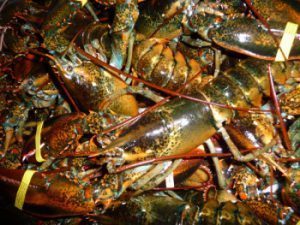
P.E.I. Lobster fishermen confused and frustrated over prices
Lobster fishermen are expressing frustration with prices for their catch at the wharf this spring being about the same as they were 16 years ago. “The harvesters of Prince Edward Island are experiencing a season that is both confusing and frustrating,” the P.E.I. Fishermen’s Association said in a news release issued early Friday morning. With the spring season coming up to the midway mark, the PEIFA says prices at the wharf in 2018 are comparable to what was being paid in 2002. >click to read<09:03
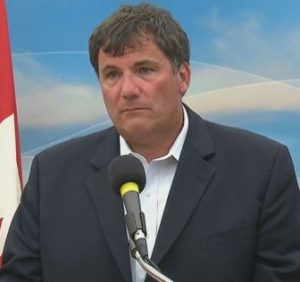
Feds limit chinook fishery to help resident killer whale recovery
The federal government is closing some recreational and commercial chinook fisheries on the West Coast in an effort to help save endangered southern resident killer whales. Fisheries Minister Dominic LeBlanc said Thursday that a lack of prey for the whales is one of the critical factors affecting their recovery. There are just 76 of the whales left and LeBlanc said in a news release that a reduction in the total chinook fishery of 25 to 35 per cent will help conserve the orca’s main food source. The closures will be in the Juan de Fuca Strait and around portions of the Gulf Islands, the department said in the release. >click to read<08:26
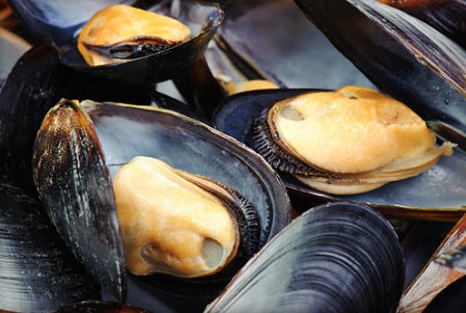
Waste Water Treatment Plants: Mussels off the coast of Seattle test positive for opioids
As more and more American communities grapple with opioid addiction, the human toll of the epidemic has grown in both scope and severity. And now, scientists at the Washington Department of Fish and Wildlife have found evidence that drug’s impact has literally flowed downstream to affect marine life, as well.,,, In three of the 18 locations, the mussels then tested positive for trace amounts of oxycodone. How, you ask? When humans ingest opioids like oxycodone, they ultimately end up excreting traces of the drugs into the toilet. Those chemicals then end up in wastewater. And while many contaminants are filtered out of wastewater before it’s released into the oceans, wastewater management systems can’t entirely filter out drugs. Thus, opioids, antidepressants, the common chemotherapy drug Melphalan — the mussels tested positive for all of them. >click to read<08:04
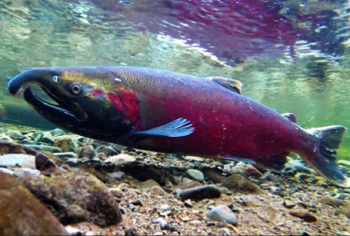
Low Copper River sockeye returns leave state mulling closures
Initially poor runs of sockeye salmon on the Copper River have prompted the state to cancel at least one window for commercial fishing from the river, with future opportunities being reassessed based on tracking data. The state Department of Fish and Game issued a Wednesday statement closing a planned Thursday window for Copper River commercial fishing, but allowing a subsistence fishing window on the same day to continue. The statement cited sonar data from Miles Lake as a key factor in the closure. >click to read<19:16
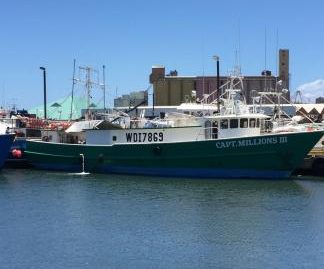
Justice Department fines 2 Hawaii commercial fishing companies over illegal discharge
Two Honolulu-based commercial fishing companies have been ordered to pay civil fines after they discharged oily bilge waste into the Pacific Ocean. Under a settlement reached with the U.S. Department of Justice and the Coast Guard, Triple Dragon, LLC, its company manager and vessel operator have been ordered to pay fines totaling $25,500 for violations of the Clean Water Act and the Coast Guard’s spill prevention and pollution control regulations. The other company, Capt. Millions III, its manager and vessel operator were ordered to pay fines totaling $22,000 for the same violations. >click to read<18:18
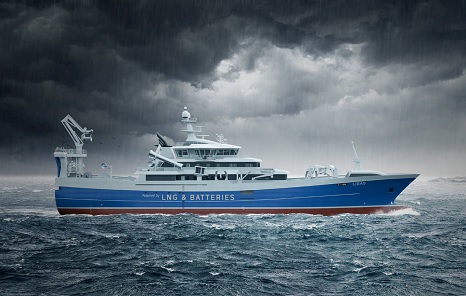
World First: LNG-Fueled Fishing Trawler Powered by MAN D&T
MAN Diesel & Turbo was picked to provide a complete propulsion package and fuel-gas system for the world’s first fishing vessel with LNG propulsion, an 86-m newbuild purse-seiner dubbed ‘Libas’ to be built by Cemre Shipyard in Istanbul. Libas will feature a MAN 6L51/60DF main engine, Renk gearbox, MAN Alpha propeller system and MAN Cryo LNG fuel-gas system with a 350 cu. m. tank. Liegruppen, the Norwegian fishing group, has ordered the vessel, while compatriot, Salt Ship Design, has provided the design. >click to read<16:18

Playing with a “Full Deck”? Scientists say fish feel pain. It could lead to major changes in the fishing industry.
Fish feel pain. Read that sentence again: Fish feel pain. The idea that fish suffer runs counter to almost everything Americans have been taught about creatures of the sea. That their brains are not complex enough to experience pain. That their behaviors when stressed — such as wriggling violently on a hook — are just unconscious reactions, disconnected from the suffering of sentient beings. That they’re, more or less, unfeeling little meat sticks that don’t deserve animal welfare protections. Greg Abrams, a longtime commercial fisherman in Florida, perhaps best sums up the classic American attitude about fish and their potential to suffer: “God put these animals on the earth for us to survive on,” he says. “Whoever’s coming out with ‘fish are tortured’ or ‘fish feel pain,’ they’re not playing with a full deck. I don’t want to be rude.” >click to read<13:48







